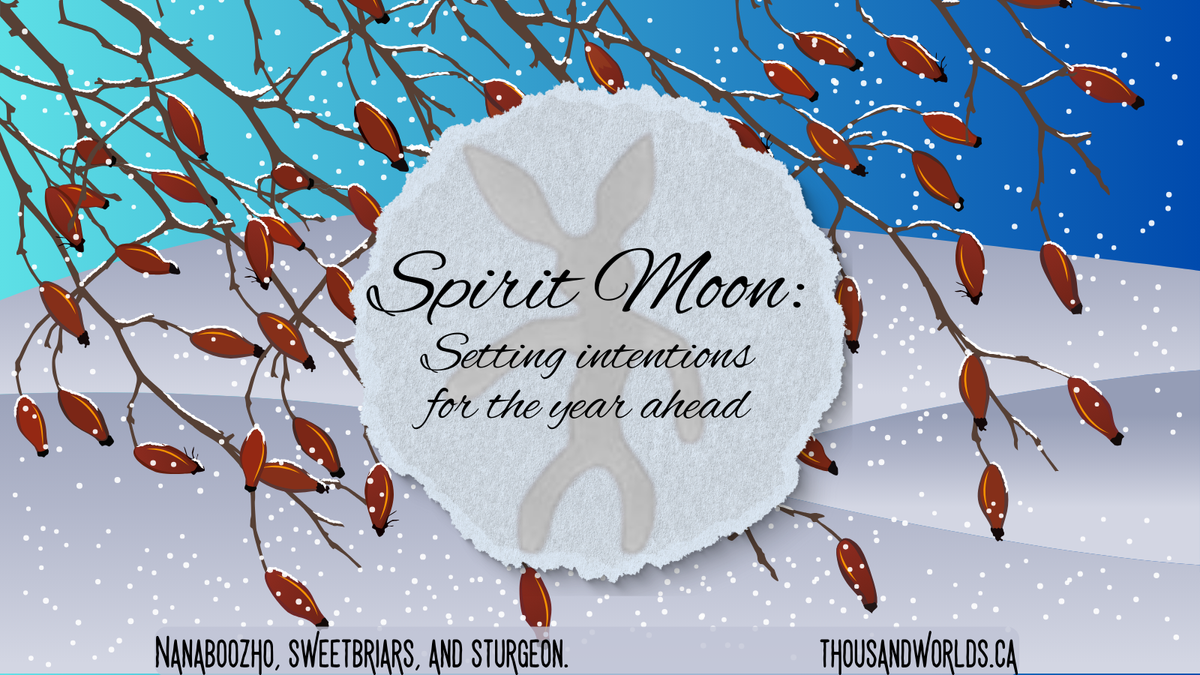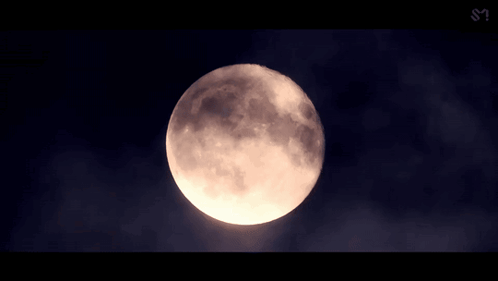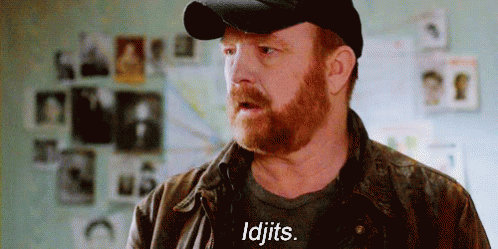Spirit Moon

January 1 is an arbitrary place to begin a new year. Doesn't make it bad. From homes to countries, religions to cultures, our lives are organized by a lot of things that are arbitrary. We collectively agree on something and don't really think about it anymore because it makes the world a little more predictable. This is also why many societies have clowns or jesters as a cultural role, to push at and challenge things that may no longer serve the people.
Calendars are political or religious things that organize the time of a large number of people, again making the world a little more predictable. The Ojibwe use a lunisolar cycle. We aren't alone in this, a lot of cultures use a lunisolar calendar because 13 moons with a 28 day cycle = 364. You have to figure out what to do with that extra day since the solar year is 365, but there's a lot of ways to do that and even a strictly solar system like the one in conventional use needs a day every four years.
I've heard two options for the Ojibwe new year. It's either the full moon after the winter solstice or the full moon after spring equinox and there's a good logic for each. Full moon after winter solstice marks the return of light which I think we can all agree is a good thing, particularly if you live in more northern places. And, in the northern hemisphere anyway, the full moon after the spring equinox is related to agriculture which also makes sense. Things start growing and if you are a mobile society, it is time to move to wherever it is you grow or harvest things. As a fun little aside, the Jewish celebration of Passover falls on this moon and the Christian celebration of Easter falls on the first Sunday after this moon.

People have said a lot of nonsense about hunter/gatherer societies and their mobile nature. They use language that makes them sound primitive and marginal, like these communities are just wandering around picking berries, chancing upon things that they can eat and nothing could be further from the truth. There's nothing primitive about large-scale permaculture forests and waterways that provide everything you need while you move around within that landscape according to the season. And it makes a lot of sense to name each moon according to what that movement looks like, makes more sense than naming it after Roman deities and leaders.
Spirit Moon is the first moon in the Ojibwe calendar after the winter solstice. Different communities call it different things, but Spirit Moon is pretty common for the Ojibwe who live north and west of Lake Superior. This moon is about getting ready, thinking through our relationships to the world around us and the spirit that infuses all things. We think about our connections to the land, the waters, and everything around us. We think about the manitous that are part of the world we live in, what we might understand as the gods of each place that know us or wait to be known. We set our intentions for the year that is ahead. Which brings me to the story about Nanaboozho, sweet briar berries, and sturgeon.

Our story is set in late winter, which is exactly how I feel about January even though January is not late winter at all. In the fall Nanaboozho had come across a man and his wife and kids who getting their winter camp set up and they agree to let him and his wife camp nearby. Both camps had a good supply of dried sturgeon to get them through the season, but there's more winter than sturgeon so eventually Nanaboozho and his wife move away from the family, taking their fish with them which seems a little rude since the original plan had been that they would eat the family's fish first and then that of Nanaboozho. The story says that Nanaboozho became angry with them, but it doesn't say why.
Facing starvation the man decides to go looking for sweet briar berries, rosehips, which are not much as far as a food source goes but they are a good source of vitamin C, and along the way he meets what he comes to realize is a manitou. There are a few tests: is that your arrow?(it is not) are you cold? (yes, I am actually) eat my moccasins (lolwut?). The manitou calls this man the Pilferer, without explanation, perhaps because he is out gathering these sweet briar berries on land that belongs to this manitou, I have no idea. The footnote says that the Ojibwe word refers to somebody who wants to use other people's things before using his own, which is what Nanaboozho actually did? Or maybe that's why Nanaboozho got mad at him, took his fish, and left.
The moccasins turn out to be dried beaver tails, a tasty treat if you are so inclined. The manitou then refills the man's backpack with some ice and gives the Pilferer directions to follow as he goes back to camp (don't look back even if you hear people threatening you, drop the pack in a depression and don't look at it until the next day), and the following morning when the man and his wife go back to where he dropped the pack they find a pool of sturgeon with enough to get them through the winter.

By this time Nanaboozho is also facing hunger and while the couple is generous with their pool of sturgeon they are also tricky, you don't let people starve but apparently you can still have some fun with them. Nanaboozho heads out to gather some sweet briar berries of his own and he too comes across this manitou. Being Nanaboozho of course, he doesn't fare so well with any of these tests. He claims the arrow as his own, denies being cold (telling himself: this guy is the one who is cold, he can make his own fire) and refuses to eat the moccasins. Along the way the manitou tells him that the Pilferer did all these things differently and at each point Nanaboozho changes his answers: the arrow is not his, he admits to being cold, and eats the moccasins that turn out to be beaver tails. Despite all this, while Nanaboozho takes the pack refilled with ice by the manitou he does not follow the directions on the way home and as a result does not find a pool of sturgeon the next morning to get his family through the winter. Fortunately, in one version of this story at least, the manitou gives Nanaboozho a do-over in which he does much better and gets what he needs so that his family can make it through the winter.
I don't know why spirits are like this, giving directions that make little sense other than being a series of tests. The final test is when the Pilferer and Nanaboozho were each told to run across the frozen lake and not turn around even though they hear people shouting "hey, push him down." That would take a lot of willpower not to try and see who is chasing you, although I understand from my old track and field days that you shouldn't do that in a race because it will slow you down and possibly cause you to fall. But still. Losing everything just because you turned around seems pretty steep, even if Nanaboozho did get a second chance. On the other hand, winter in the north is no joke and you may have to take direction that doesn't seem to make sense. You have to trust that the person giving the order knows something you don't and that they have good intentions.
Training people to follow orders without questioning them is common enough in systems from families and elementary schools to faith communities and on up into the military. None of these begin with the big stuff, they all start small like the manitou (that your arrow? are you cold?). When I did a placement in university for my degree in Social Work one of the things I participated in was the Family and Schools Together program. It was geared to improve the relationships between parents and the school as well as helping parents develop skills based in a changed relationship with their child. Every session began with singing which, the materials explained, is because people are more inclined to learn if they have first participated in group singing, the sillier the better. It is especially effective if there is a physical component like hand gestures or dance steps. It breaks down barriers and creates a kind of group cohesion that leads to better learning outcomes. Turns out that when you get people to comply with harmless, even fun, demands they are more likely to comply with demands that cost a little more than looking or sounding silly. And if you can do this in a group setting, then the group itself will reinforce that learning.
It isn't necessarily a bad thing, the good or bad of it derives almost entirely from the system and the people within it. It would be exhausting to have to think through everything all the time and people get into the habit of doing what they're told. In fact, one of the things that I hear over and over about my own book, Becoming Kin, is appreciation for the task at the end of each chapter, something for people to do in response to what they've just learned. "People want to be told what to do," my editor told me when she suggested it. But at some point we have to think about these things we're being told to do, we have to use critical thinking. Critical thinking is not a threat to a good leader, questions about the assumptions that underlie the request or point out unintended consequences for example. But authoritarian leaders don't like it, which makes that kind of questioning a good test of leadership.
Critical thinking is one of those phrases that gets thrown around but we don't really consider what it is. At its most basic, you're using critical thinking when you ask yourself how you, or somebody else, knows something. What is the source of this knowledge I'm taking for granted? Who taught me this, and why? Consider the source, and then turn your attention towards multiple sources on that topic. What do different perspectives bring to this issue?
Which brings me back to this story about Nanaboozho, the sweet-briar berries, and the sturgeon which is, to me, about following orders and knowing who to trust. Because I'm not sure what reason Nanaboozho had for trusting this manitou in the first place. Besides, who is served by a "he should have just followed instructions" moral at the end the story? This actually makes me curious about the different endings documented by Jones in his telling of this story. One version ends with a hungry Nanaboozho and no sturgeon, the other ends with the do-over. Personally, I find the second story more consistent with general Anishinaabe thought and the first more consistent with the missionaries for whom unthinking obedience was a big part of how they organized their schools.
The first set of questions were resolved with "well, that's not what the one who came before you said or did" which is one way to assess somebody's trustworthiness. You may not know much about the leader in any given situation, but your friend seems to trust them so that's going to be as solid a reason for taking first steps as any other. Assuming of course that your friend isn't an idjit.

Then we get to the harder things. Run across this frozen lake and don't react when you hear people saying they're going to push you down. Drop your backpack and don't look back. That's harder, isn't it? By this time the manitou has shown he can be trusted; they've got a fire and he's fed Nanaboozho dried beaver tails. But isn't this also the premise of our current system? It keeps small promises, or just enough of them, so that people who never see any of the benefits hang on long past all good sense in the hope that they'll get what was promised. And everyone, including themselves, blames them if they don't get what was promised.
I'm having a hard time faulting Nanaboozho for looking back. Clearly it was the wrong choice, looking back cost him a pool of sturgeon and he had to go through the whole thing again but that's ok because that's how life ought to work. We learn, we make mistakes, we try again. The Anishinaabe creation story itself contains this lesson. Creator kept trying and failing, things just aren't right. Eventually nibi (water) washes the world clean and together they create this world that we currently live in. The manitou didn't scold Nanaboozho either, just went through the same procedure as before with Nanaboozho answering correctly this time and then going home and dropping his pack without looking back.
Why do we scold people for doing the thing that we want them to do?
You've probably caught yourself doing this, trying to get somebody to do something and when they finally do it you respond with sarcasm: oh she speaks; so now you want to; you can come out of your room; you're hungry after all; etc. etc. All the little ways that we chip away at people instead of being more like this manitou when Nanaboozho shows up a second time hungry and tired. He just acts like the previous time didn't happen. Is that your arrow? Are you cold? Eat my socks. And the socks/moccasins are still dried beaver tails by the way, he doesn't sneak in a punishment either. All of which tells me that this manitou is trustworthy, is not running some kind of authoritarian scam to get Nanaboozho, the Pilferer, and others to become unthinkingly obedient. Maybe he recognized that Nanaboozho was also testing him, and that being tested as a leader is ok. We should be able to test leaders, ideas. We should be able to get multiple perspectives on something or someone before we decide what to do.
As you're setting intentions for this new year, resolve to pay attention to how the leaders in your orbit respond to dissent or challenges to their authority. Resolve to pay attention to how you respond to these things. And know that it is ok to test people and ideas, to use some critical thinking before you go running off with a backpack of stuff somebody else packed for you.
Happy New Year :)

Disorienting Neoliberalism: Global Justice and the Outer Limit of Freedom by Benjamin L McKean. This was my first book on neoliberalism, and it was fascinating. Not a long or particularly difficult read and really helped me understand wtf neoliberalism is. Unlike neoliberalism that conceptualizes freedom within the marketplace, McKean offers a kind of test. Can you say that the system that shaped you is one that you would have freely chosen? What I liked about this book is that he identifies neoliberalism and the harms it does, but with the intention of moving us towards things we can do so that our children may one day say that the society that shaped them is one they would have freely chosen.
Neoliberalism's Demons: On the Political Theology of Late Capital by Adam Kotso. This one comes at it from a theological perspective. Not that it is overtly religious, but it talks about neoliberalism AS religion rooted in western Christianity which was pretty neat. One thing he observes is that demons are beyond redemption, so when a society demonizes people, it puts them beyond redemption. Which is true, I just hadn't thought of it that way before.
To Serve God and Wal-Mart: The Making of Christian Free Enterprise by Bethany Moreton. I was looking for a book about Christianity's role in the development of neoliberalism, and somebody suggested this book. This history of WalMart and how it's development is connected with Sunbelt Christianity, centering in Arkansas, and populist beliefs that "we're not like those rich elites." She also looks at the role of women as shoppers and workers in shaping how WalMart developed from a local discount chain to the behemoth it is.
The Armageddon Factor: The Rise of Christian Nationalism in Canada by Marci McDonald. Canada can be so smug in it's "we aren't the US" identity, which sometimes seems like it's Canada's whole personality. Canadians are worried about Christian Nationalism being imported from the US, but as McDonald points out, Christian Nationalism is not being imported, it has been here for a very long time. Canada does not even have a separation of church and state like the US does. The only thing being imported is strategy.
Cobalt Red: How the Blood of the Congo Powers Our Lives by Siddharth Kara. I knew that things in Congo were bad. I had no idea how bad, and for how long. From Dr. Livingstone to the Belgian King Leopold, the slave trade and contemporary mining, Congo should be wealthy on the scale of Saudi Arabia or Dubai but it is not. What it is, is exploited. Cobalt is in every rechargeable battery and the way it gets there will break your heart. What Kara exposes about extraction and supply chains applies broadly to everything from minerals and oil to textiles.

And don't forget to join up with the Nii'kinaaganaa Foundation. Every month we collect funds from people living on Indigenous land and redistribute them to Indigenous people and organzers. You can find out more information on the website which is now powered by ghost, which means that you can become a subscriber there just like you are here!
